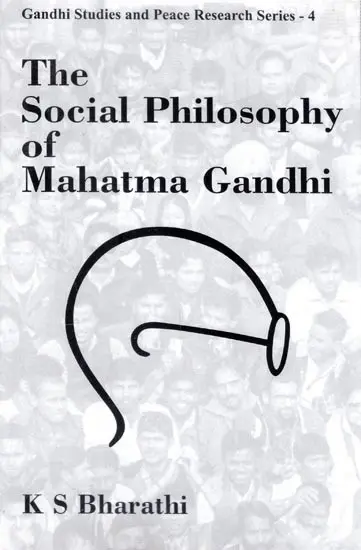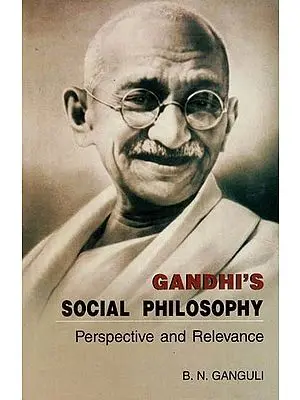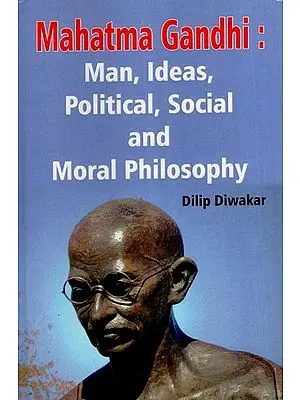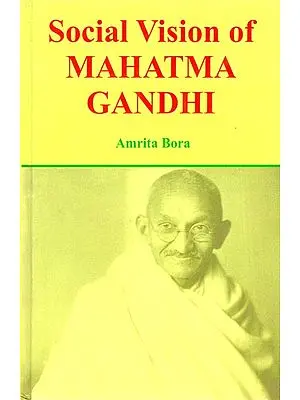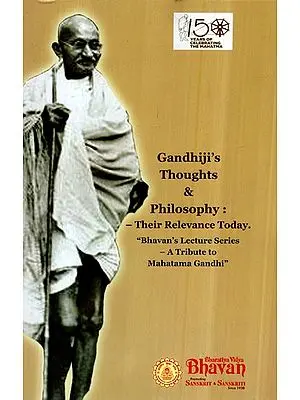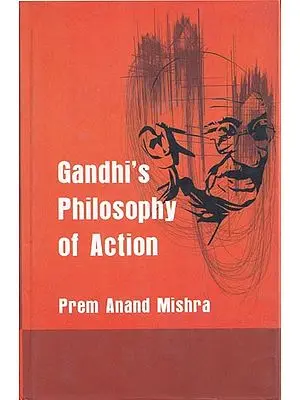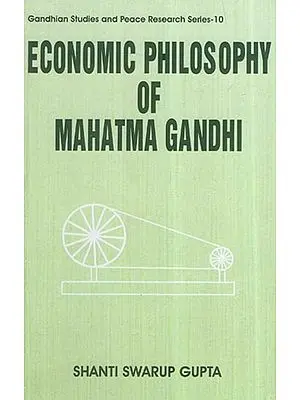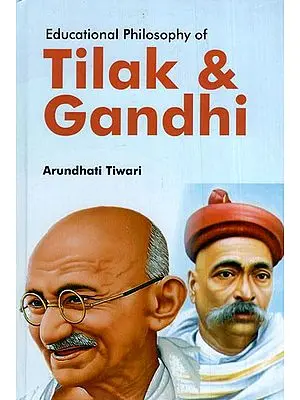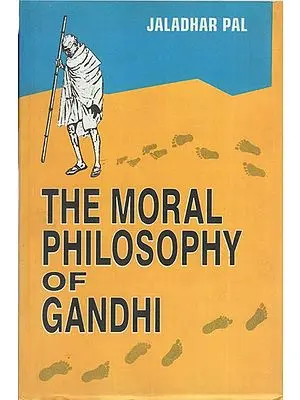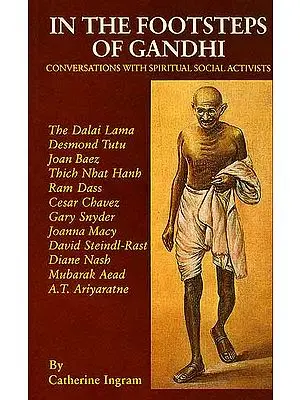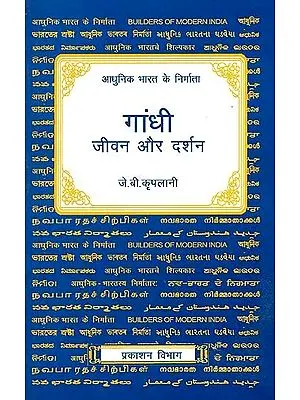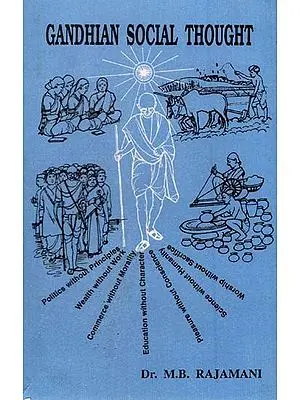The Social Philosophy of Mahatma Gandhi
| Specifications |
| Publisher: CONCEPT PUBLISHING COMPANY PVT LTD | |
| Author: K.S Bharathi | |
| Language: English | |
| Pages: 159 | |
| Cover: HARDCOVER | |
| 9.00 X 6.00 inch | |
| Weight 300 gm | |
| Edition: 2020 | |
| ISBN: 9788170223627 | |
| BAC896 |
| Delivery and Return Policies |
| Usually ships in 3 days | |
| Returns and Exchanges accepted with 7 days | |
| Free Delivery |
Books on Gandhi abound. But, hardly any one of them offers a comprehensive discussion of Gandhi as a social thinker. This book seeks to provide a comprehensive exposition of Gandhi as a social thinker and also to show that Gandhian ideas do have a rational philosophical validity.
The book takes up certain key issues in social philosophy such as constructive work, constructive programme, conception of man, population, humanism, individual and society, means and ends, and shows how Gandhi with his unique worldview offers entirely new approaches to them.
This book is bound to blaze a new trail of Gandhian studies. It promises to bring to its readers not only a new understanding of Gandhi but of the world we live in today.
Dr. K.S. Bharathi did his Master's Degree in Gandhian Thought, Peace-Science, Economics, Political Science and History. He also did Postgraduate Diplomas in Politics, Public Administration, Population Dynamics, Gandhian Thought, Tourism, Telugu and Business Management. He has contributed some articles in learned journals in India and abroad, He is the author of: Foundations of Gandhian Thought, Gandhi and Humanity, Socio-Religious Thoughts of Mahatma Gandhi, Gandhi and Ideology of Satyagraha, The Philosophy of Sarvodaya, Satyagraha of Mahatma Gandhi and Gandhi and Nehru. At Present, he is the Head of the Postgraduate Department of Gandhian Thought of Nagpur University, He is a member of the Academic Council, member of the Senate, member of the Board of Studies of Gandhian Thought, member of the Faculty of Social Sciences, member of the Doctoral Research Committee and member of the B.U.T.R. of Nagpur University.
THERE ARE many valuable books on Gandhian Thought. But, hardly any one of them offers a comprehensive discussion of Gandhiji as a social thinker. This work seeks to provide a comprehensive exposition of Gandhi as a social thinker and also shows that Gandhian ideas do have a rational philosophical validity.
The constructive work aims at removing disabilities of the people at the social, political, economic and spiritual levels. Wars and conflicts arise, often from the maladies found all round. The constructive work goes to the roots of wars and tries to set them right. Thus theoretically constructive work is needed to set right things everywhere. For taking any movement to the 'grass-roots' constructive work is needed.
Gandhiji discovered the various items of the constructive work whenever he found them necessary to the historical situation in which he was placed. Thus it appears that the Gandhian constructive programmes are 'context sensitive'. Gandhiji says, 'My list does not pretend to be exhaustive; it is merely illustrative'. Thus he leaves his list of constructive programmes as open and depending on the need new programmes may be added and old programmes may be interpreted and revitalised.
Chapter 1 deals with constructive work. Chapter 2 deals with constructive programme. Chapter 3 deals with Gandhian conception of man. Chapter 4 deals with Gandhiaan approach to population. Chapter 5 deals with Gandhian concept of humanism. Chapter 6 deals with individual and society. Chapter 7 deals with means and ends.
So far as the writing of this book is concerned, whatever success I have achieved is due to the relentless efforts, consistent help and encouragement of Dr. P.S.G. Kumar, Head of Library and Information Science Department of Nagpur University. I express my sincere gratitude to him.
Book's Contents and Sample Pages
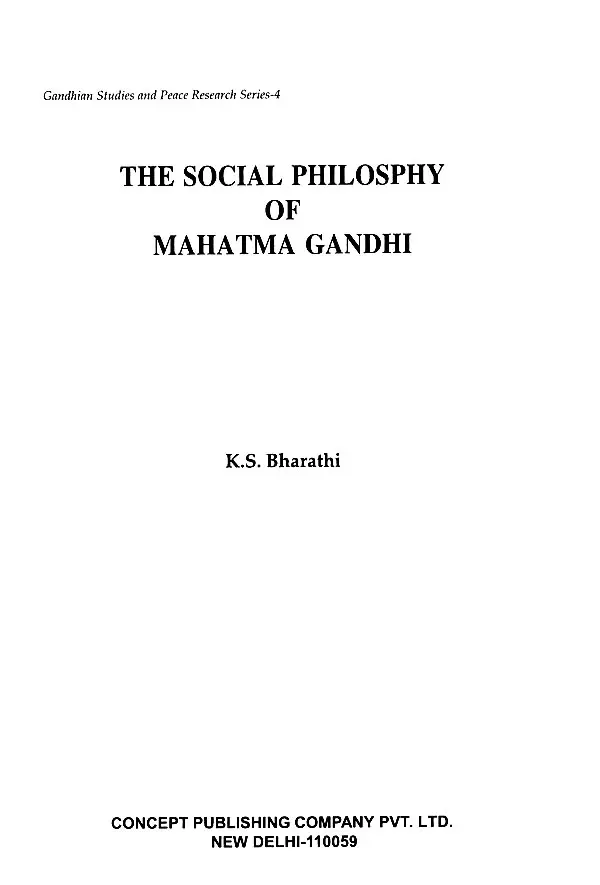
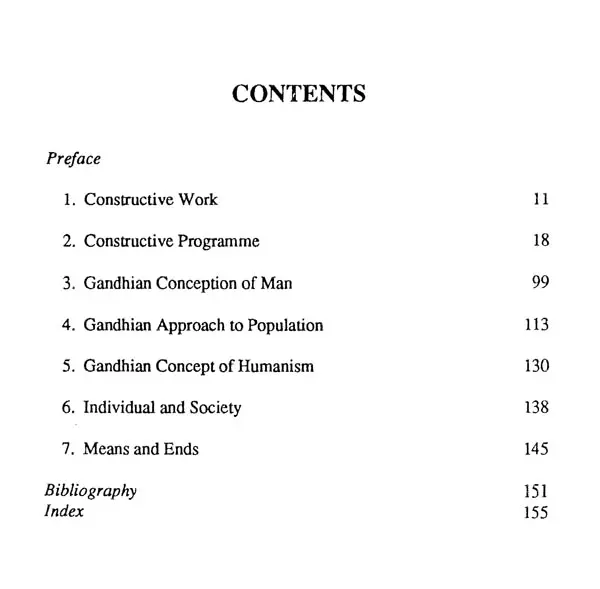

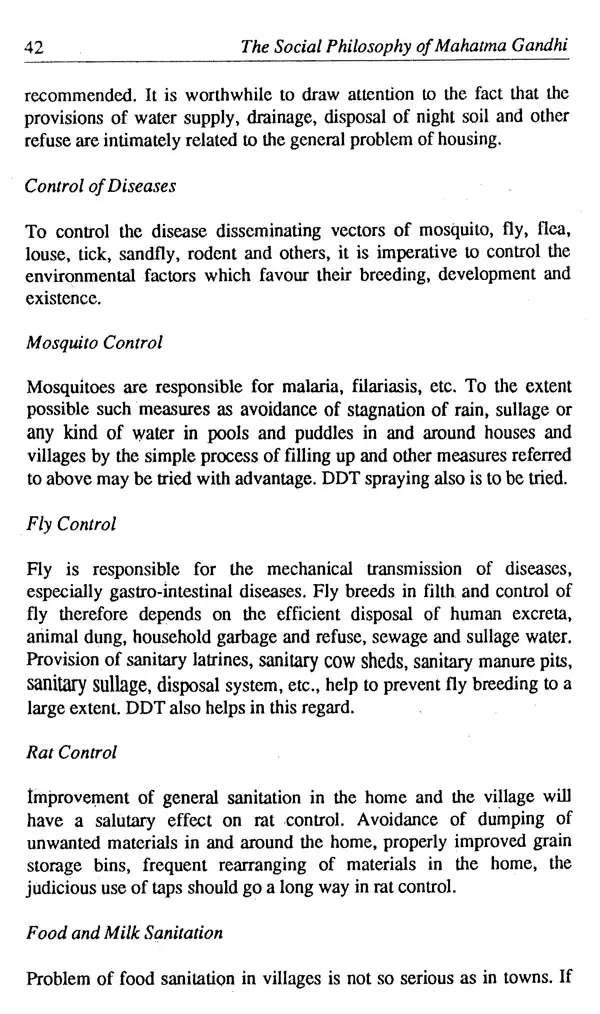
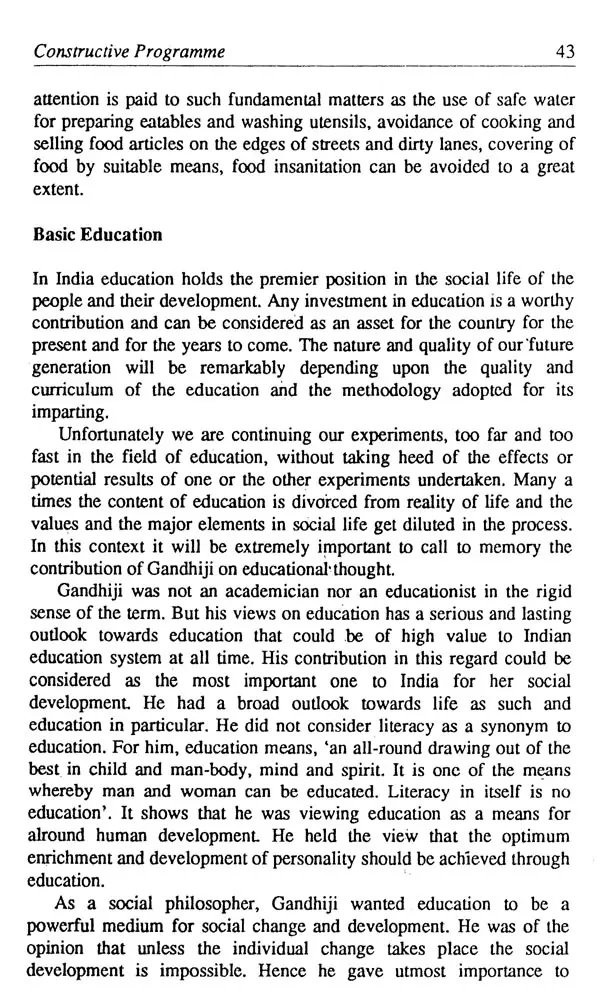
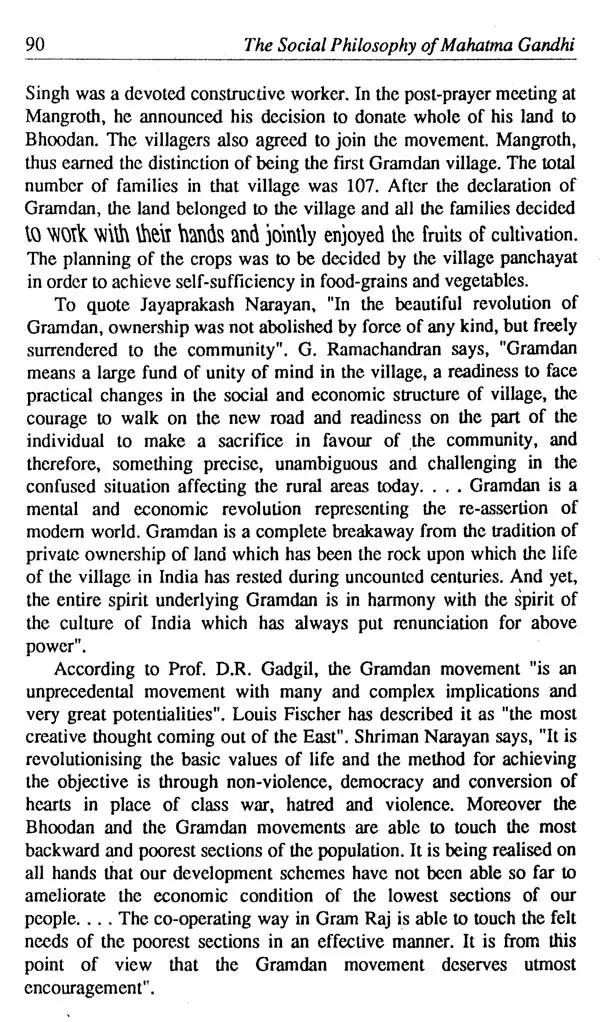

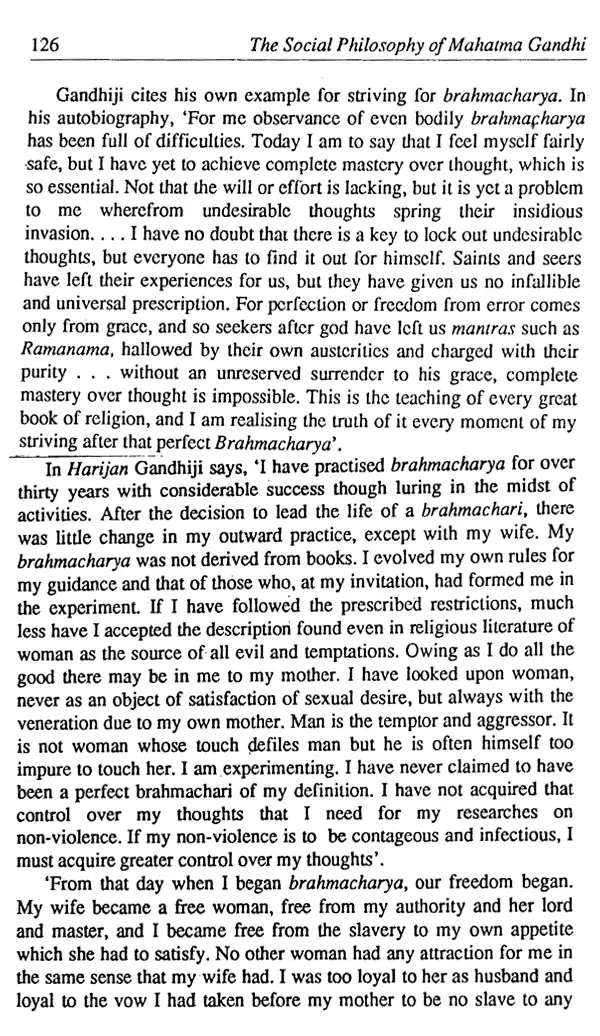
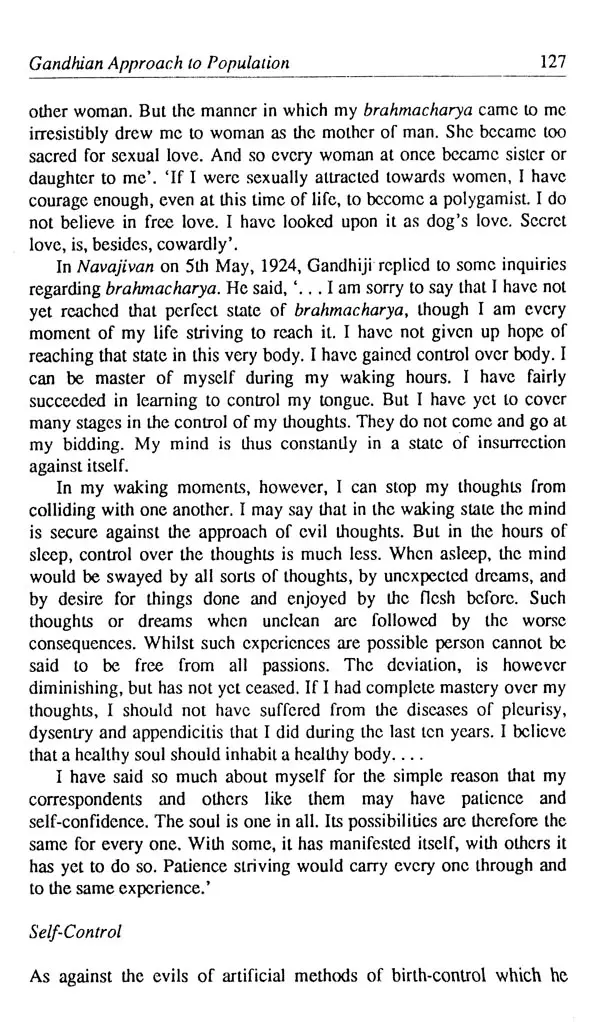
-
Q. What locations do you deliver to ?A. Exotic India delivers orders to all countries having diplomatic relations with India.
-
Q. Do you offer free shipping ?A. Exotic India offers free shipping on all orders of value of $30 USD or more.
-
Q. Can I return the book?A. All returns must be postmarked within seven (7) days of the delivery date. All returned items must be in new and unused condition, with all original tags and labels attached. To know more please view our return policy
-
Q. Do you offer express shipping ?A. Yes, we do have a chargeable express shipping facility available. You can select express shipping while checking out on the website.
-
Q. I accidentally entered wrong delivery address, can I change the address ?A. Delivery addresses can only be changed only incase the order has not been shipped yet. Incase of an address change, you can reach us at help@exoticindia.com
-
Q. How do I track my order ?A. You can track your orders simply entering your order number through here or through your past orders if you are signed in on the website.
-
Q. How can I cancel an order ?A. An order can only be cancelled if it has not been shipped. To cancel an order, kindly reach out to us through help@exoticindia.com.










